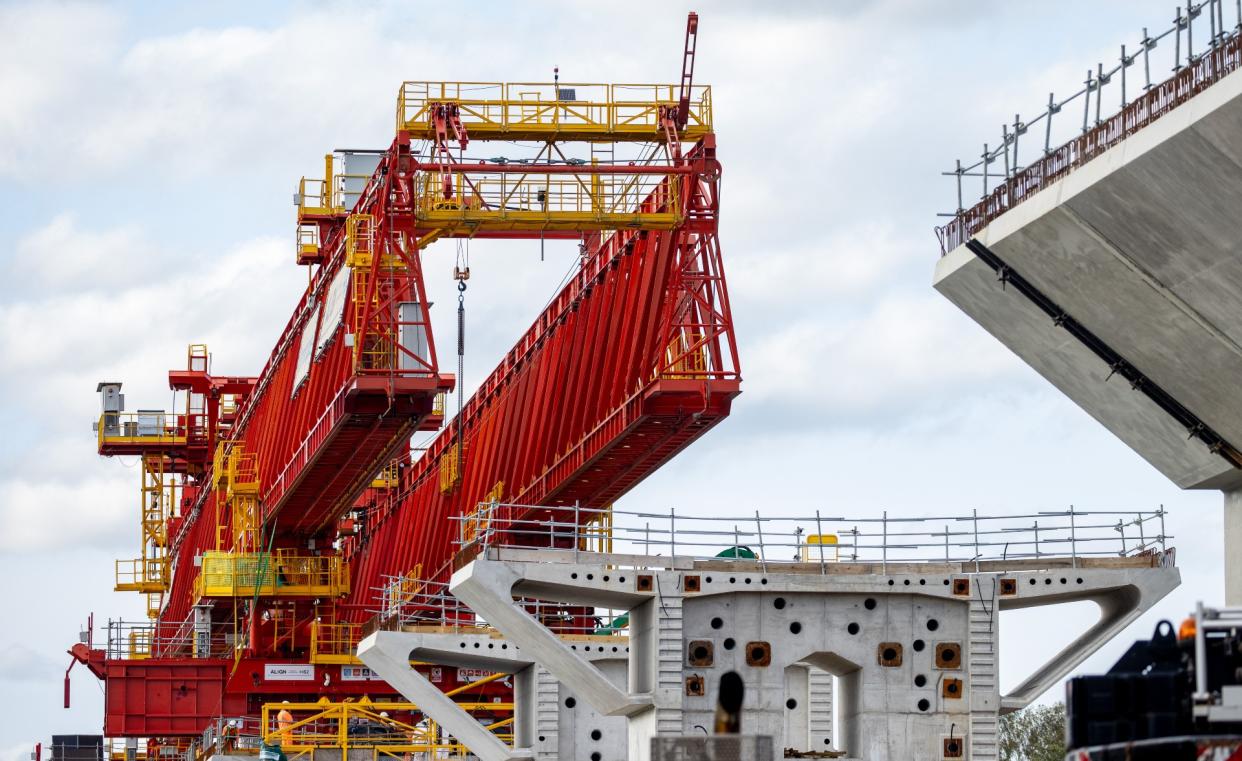HS2: a runaway train

HS2 now resembles the Black Knight in "Monty Python and the Holy Grail", the one who carries on fighting as his limbs are lopped off, one by one, said Ross Clark in The Spectator.
First, the Birmingham to Leeds limb was cut; then it was the link between Manchester and the West Coast mainline. The section between Old Oak Common in west London and Euston "has been hanging by a ligament for a while", Clark wrote for the magazine. Now, leaks suggest that Rishi Sunak "is about to swipe his sword" through the whole Birmingham to Manchester arm.
Costs, the PM rightly believes, are out of control. HS2 started off with a price tag of £32.7 billion. Now, though heavily truncated, the line is likely to cost over £100 billion, or £200 million per kilometre; the European average for high-speed rail projects is £25 million per kilometre.
'Indefensible and obscene'
It's time to stop this runaway train, said Ben Marlow, chief city commentator for The Telegraph. Scrapping the Birmingham to Manchester spur could save £35 billion. Sadly, about £2 billion has been spent on it already, but there's no point throwing good money after bad.
The problem with that, said Alistair Osborne in The Times, is that it would leave us with a £60 billion "fast shuttle nobody wants" from Birmingham Curzon Street, 15 minutes from the centre, to Old Oak Common, six miles west of Euston. There is "zero economic case" for a high-speed line between London and the North which reaches neither.
Sunak should can the whole thing, said Simon Jenkins in The Guardian, and recoup billions by selling the land. HS2 has always been a "dud". "Hospitals are bursting at the seams, schools crumbling and local services failing." To spend £135 million a week "on a white elephant is indefensible". It is "obscene".
'The case is still sound'
But cancelling it now would be worse, said the Financial Times. The case for HS2 is still sound: without it, the two main London-Scotland lines will become over-loaded. The real bottlenecks are north of Birmingham, so Sunak must not cut that spur. New rail lines will bring new jobs, investment, the promise of a levelled-up "integrated economy" – and lower emissions. A U-turn, by contrast, would raise doubts about whether the British Government can be trusted to fulfil its commitments, and whether it has the "capacity to run a 21st-century economy".
Perhaps it doesn't, said Philip Johnston in The Telegraph. The UK seems to be "uniquely bad" at delivering major infrastructure projects. According to the think-tank Britain Remade, we spend eight times more on rail and road projects than our EU neighbours. Why? Because of onerous planning laws; high land prices; a shortage of engineers; and "woefully" poor procurement and contract management.
In HS2's case, the line has been expensively "gold-plated", with tunnels and cuttings through well-off marginal constituencies, and an unnecessarily high track speed. Delays and dithering, too, add to costs. And we can expect more of them: Sunak does not want to go to the Conservative conference in Manchester this weekend "having just scrapped the HS2 link to the city".

